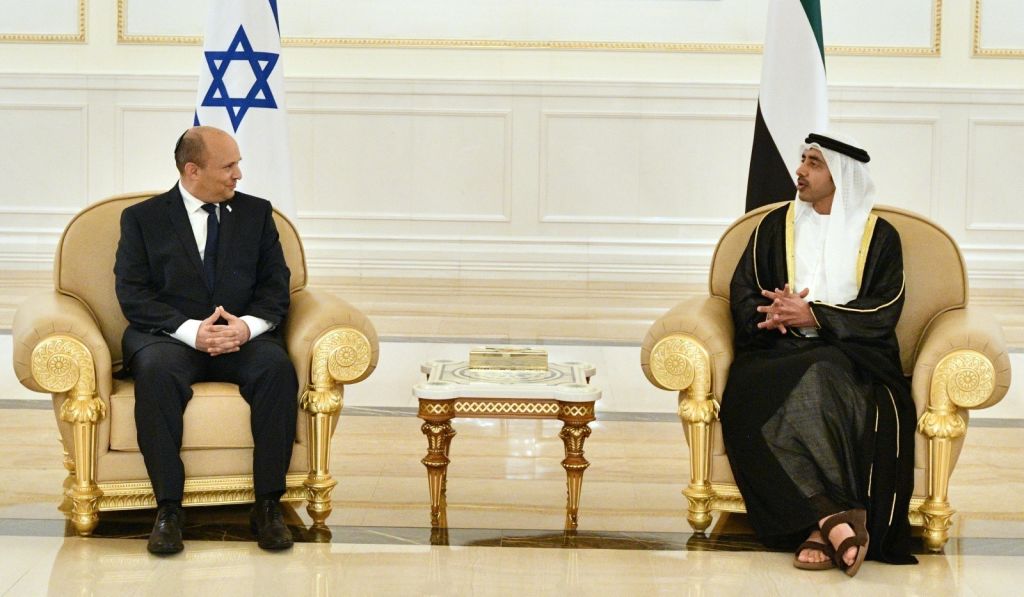
Israeli Prime Minister Naftali Bennett is headed to Abu Dhabi on a historic visit, with talks on Iran’s nuclear program and its impact on the Middle East expected to top the agenda.
Bennett flew out on Sunday, becoming the first Israeli prime minister to make an official visit to the United Arab Emirates. He is to meet on Monday with the UAE’s de facto leader, Sheikh Mohammed Bin Zayed Al Nahyan, the crown prince of Abu Dhabi.
Negotiations between world powers and Iran to revive a 2015 agreement that lifted economic sanctions on the Islamic Republic in exchange for curbs on its nuclear program have made little progress amid mutual recriminations.
While a shared concern over Iran’s ability to destabilize the world’s top oil-exporting region pushed the UAE and Israel into a landmark deal to establish diplomatic ties last year, they’ve differed on their approach to Iran’s ramped-up enrichment of nuclear material and brinkmanship since the Trump administration pulled out of the nuclear agreement in 2018.
Bennett has echoed a tough line against any concessions to Iran shared by his predecessor, Benjamin Netanyahu, who lobbied President Donald Trump to abandon the nuclear deal.
Israel says a nuclear Iran would pose an existential threat, and that removing sanctions would allow Tehran to finance regional militias to menace Israel. Government officials have suggested that Israel may resort to striking Iranian sites in the event diplomacy fails. Iran denies that it seeks to build nuclear weapons.
The UAE has taken a different tack, with officials shuttling around regional capitals offering investment and major trade in an effort to cool tensions. Sheikh Tahnoon bin Zayed, the UAE’s national security adviser and the crown prince’s brother, met with Iranian President Ebrahim Raisi last week to repair a historically close relationship that in recent years has soured.
While the approaches “are divergent, they can be complementary,” said Mohammed Baharoon, director general of the Dubai-based B’huth think tank.
Israel’s alleged strikes on Iranian nuclear sites have delayed the program but also given the Islamic Republic time to modernize its capabilities, affording Tehran more bargaining power in negotiations with the U.S. and Europe, he said.
Meanwhile “Abu Dhabi can provide a controlled and contained ease of sanctions, allowing Iran to engage in the Vienna talks without conditioning the full lift off of sanctions.”
More Must-Reads from TIME
- Donald Trump Is TIME's 2024 Person of the Year
- Why We Chose Trump as Person of the Year
- Is Intermittent Fasting Good or Bad for You?
- The 100 Must-Read Books of 2024
- The 20 Best Christmas TV Episodes
- Column: If Optimism Feels Ridiculous Now, Try Hope
- The Future of Climate Action Is Trade Policy
- Merle Bombardieri Is Helping People Make the Baby Decision
Contact us at letters@time.com